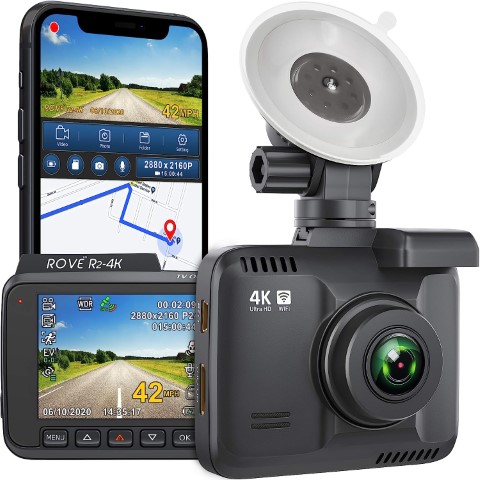 Have you ever wished you had video evidence of a car accident? Or maybe you’ve witnessed dangerous driving on the road and wished there was a way to hold the driver accountable. That’s where dash cams come in. These compact cameras can be mounted on your car’s dashboard and record everything on the road, providing valuable evidence in case of an accident, theft, or road violation.
Have you ever wished you had video evidence of a car accident? Or maybe you’ve witnessed dangerous driving on the road and wished there was a way to hold the driver accountable. That’s where dash cams come in. These compact cameras can be mounted on your car’s dashboard and record everything on the road, providing valuable evidence in case of an accident, theft, or road violation.
Suppose you or a loved one has been involved in a car accident. In that case, you must contact an experienced car accident lawyer, a top-rated auto accident attorney in Tampa, FL, who can help guide you through the legal process and ensure your rights are protected. This blog post discusses everything you need to know about dash cams, including how they work, their benefits and the available types.
How Do Dash Cams Work?
A dash cam is a small camera that records what’s happening in front of your car. Most dash cams start recording automatically when you turn on your car and stop when you turn off the ignition. The footage is usually stored on an SD card, which you can later access and view on your computer or smartphone. Dash cams are equipped with a loop recording feature, meaning they will overwrite the oldest recorded footage when the storage space is full, ensuring you always have the latest footage available.
What Are The Benefits Of Using A Dash Cam?
There are numerous benefits to using a dash cam, the most important being increased safety on the road. Dash cams can act as a deterrent to reckless driving and road rage incidents, as they provide evidence that can be used to hold drivers accountable.
They can also provide valuable evidence in case of an accident, helping you prove fault and protect yourself from insurance fraud. In addition, dash cams can help you capture memorable moments from your road trips or scenic drives.
What Are The Different Types Of Dash Cams?
Several types of dash cams are available on the market, including front-facing, rear-facing, and dual-facing cameras. Front-facing cameras record what’s happening in front of your car while rear-facing cameras record what’s happening behind you. Dual-facing cameras come with both front and rear-facing cameras, providing you with comprehensive coverage. Some dashcams also have additional features such as GPS tracking, night vision, and motion detection.
How Do You Install A Dash Cam?
Installing a dash cam is a relatively simple process, and most dash cams come with a mounting bracket, adhesive pad, or suction cup for easy installation. You’ll need to find a suitable location on your dashboard where the camera won’t obstruct your view of the road.
Once you’ve found the right spot, attach the mounting bracket or adhesive pad, and secure the dash cam. Some dash cams come with a power cable that must be connected to your car’s cigarette lighter socket, while others can be hardwired to your car’s battery.
What Should You Look For When Buying A Dash Cam?
If you’re in the market for a dash cam, there are particular features you should look for to ensure you get the most out of your investment. Some key features include video resolution, storage capacity, loop recording, GPS tracking, and parking mode. You should also look for dash cams with good reviews, reliable customer support, and a warranty.
In addition to providing evidence in case of an accident or road violation, dash cams can help you capture memorable moments from your road trips and scenic drives. With the right features and proper installation, a dash cam can be a valuable investment for any driver.
Conclusion:
Overall, dash cams are a valuable tool for increasing safety on the road and protecting yourself from liability in case of an accident. They’re easy to install, come with a range of features, and can provide you with valuable evidence in case of a road incident. So whether you’re an experienced driver or a new driver hitting the road for the first time, investing in a dash cam is worth considering. Remember, if you get involved in a car accident, contact an experienced car accident lawyer, a top-rated auto accident attorney in Tampa, FL, to guide you through the legal process and ensure your rights are protected!










